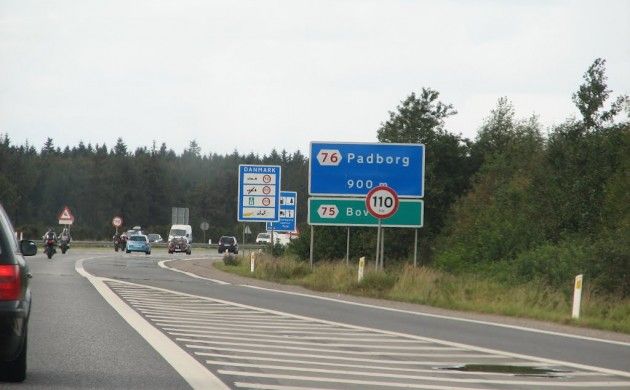Delays at the borders with Germany and Sweden will be significantly reduced from this morning onwards, following confirmation there will be no more routine passport checks carried out by Danish border officers.
Germany: In place for over seven years
From today, 85 fewer working years will be annually deployed to the German-Danish border, where motorists will still be required to slow down, but are unlikely to be stopped.
A temporary border control is still in place – until 11 November 2023 – but it is now very much relaxed.
Since the controls opened on 4 January 2016, queues have frequently formed due to the checks: most particularly at the weekend, on Friday afternoons and on the occasion of German public holidays.
On such occasions, the average wait was 15 minutes, a regular commuter told DR.
Sweden: completely stopped at the Danish end
At the Danish end of the Øresund Bridge, meanwhile, all checks will cease completely.
However, the Swedish Police will continue to carry out checks on motorists heading in and out of Sweden.
Controls at the Swedish-Danish border have been in place since 12 November 2019.
Concerns countered by reduced crime claims
Dansk Folkeparti has voiced its opposition to the measures.
“It is the completely wrong way to go. Europe and the EU are heading into a migration crisis, so it goes without saying that we should strengthen border control – not relax it,” spokesperson Peter Kofod told DR.
Henrik Frandsen from government party Moderaterne countered that the changes along the German-Swedish border will enable the police to dedicate more time to stopping “criminal ringleaders who operate across national borders”.
The Rigspolitiet national bureau concurred with Frandsen’s assessment that “border control will be strengthened”.












